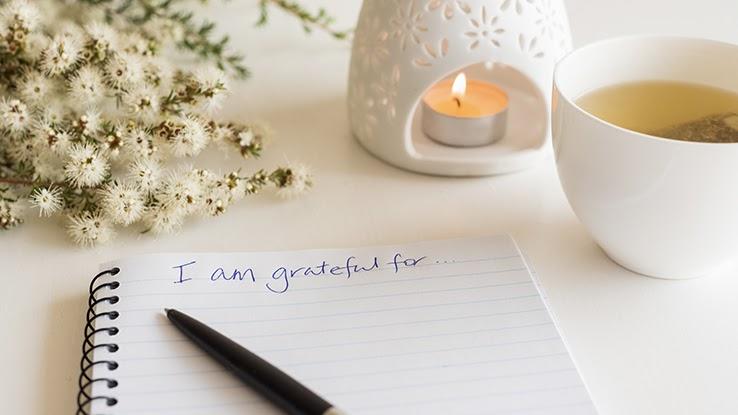
Feelings of gratitude are for more than Thanksgiving dinner — gratitude and thankfulness have profound impacts on your mental health and overall wellbeing. Whether you’re writing a thank-you note or practicing gratitude meditation, acknowledging what you’re thankful for can help you feel lighter and more appreciative for the people and blessings in your life.
While it’s not always easy to see your glass as half-full — in fact, it’s important to pay attention to negative emotions — there’s some science that supports focusing on thankfulness. From feeling less stressed to making deeper connections and relationships, there are many benefits in expressing gratitude.
Gratitude Helps Release Negative Emotions
Negative emotions tend to stick with us, and they can be harmful to our mental health if we don’t release them in a healthy way, instead choosing to bottle them up. They can even start to affect our physical wellbeing. Think about a time you felt physically ill from treating someone badly or because of the way a situation turned out. Addressing these emotions through gratitude helps us process and release them.

Holding in emotions is stressful. You’ll feel lighter and less stressed once you’ve gotten what you need to off your chest. Writing a thank-you note, for example, is a great way to release any hard feelings and tell someone you appreciate them. Any ill-will you felt might fade away when you take a few moments to think about your gratitude.
Gratitude Is Great — Even If You Keep It to Yourself
Even if you don’t tell someone you’re thankful for them, gratitude still has positive effects on your health. Mentally saying you’re thankful for someone or something they did triggers the same responses in your brain, according to a report published in Nature. You’ll still feel the same release you do if you were to tell them in person.

Imagine that someone you’re grateful for has passed away. Write them a letter as if they were still living. List out everything you’d want to tell them in person if they were still here. Although they won’t get to read the letter, it’ll feel great to get those feelings off your chest.
In other cases, the things you’re thankful for might be actual objects. These objects can’t talk back, but it can still be helpful to mentally take a few seconds to reflect on your appreciation for them. Being thankful for an object could mean you’re thankful for the person who gave it to you or the job you have that allowed you to buy it.
The Benefits of Gratitude Build on Each Other
Being thankful and expressing gratitude have an immediate effect on your mood, and the mood-boosting benefits often snowball. At first, you might feel happy you told someone your feelings. You two could then strike up a longer conversation, and you’ll start to feel a deeper connection. This could lead to fewer feelings of loneliness, deeper feelings of love and more.

Gratitude Has Lasting, Positive Effects on Your Brain
Keeping feelings of gratitude to yourself can impact your ability to feel empathy or deal with stress. Getting these feelings out into the open may physically show a difference in your brain activity, according to a University of Southern California study. Researchers found that these changes in your brain then affect other decisions you make. Participants felt more likely to give to charity, for example, or help others in need after acknowledging their gratitude.

Thankfulness Improves Your Relationships
One of the biggest benefits of regularly showing gratitude is the effect it has on your relationships. Daily or weekly expressions of gratitude cause you to think about the people and relationships in your life. The positive emotions and feelings that come from expressing your gratitude can subsequently strengthen those relationships.

Think about how much closer you’ll feel to a person after you’ve written them a letter or called them. Maybe this person helped you get through a difficult time or has had a big impact on your life. Showing them can foster a deeper connection between the two of you.
How Can You Express Gratitude?
There are a number of ways to express your gratitude, and it can help to try several to find out what resonates most with you. Below are a few ways to practice thankfulness and reap the many benefits.

1. Write a Thank-You Note
The thank-you note is one of the most common ways to show someone your gratitude. Writing someone a thank-you note doesn’t take a lot of time or money, but it does have a big impact on the person who receives it — and on you after you send it.
2. Keep a Journal of Gratitude
If you’re looking to make gratitude a regular practice, consider keeping a gratitude journal. You can write a few lines in your journal once a day or even once a week. Taking the time to write out what you’re thankful for will have a profound impact on your wellbeing and mental health. Your journal can contain a simple list of words of thanks and gratitude or longer discussions about your feelings. Do what comes naturally and what feels right to you.
3. Take Time to Count Your Blessings
You don’t need to write anything out to practice feeling thankful. The simple act of “counting your blessings,” or thinking through all you have to be grateful for, can still give you the benefits of a regular gratitude practice. Take a few minutes when you start or end your day to mentally list out what you’re most thankful for. You might start with three things each day and increase from there.
4. Give Someone a Call
A simple call is a great way to show someone you’re thankful for them. Even if you don’t have something specific to thank them for, the act of calling them means you’re grateful they’re in your life. They’ll love the time spent connecting with you.
5. Meditate or Pray
Again, not all gratitude has to be shared. Sometimes, meditating and spending a few minutes only focused on your gratitude are all you need. Prayer is another way people might choose to mentally reflect on what they’re thankful for.
Practicing gratitude and thankfulness comes with some pretty powerful benefits. From boosting your mood to improving your relationships, it doesn’t take a lot of time to incorporate this meaningful and enriching routine into your day. With everything going on in life, it’s always a good idea to slow down and count your blessings.
Resource Links:
https://greatergood.berkeley.edu/article/item/four_ways_gratitude_helps_you_with_difficult_feelings
https://positivepsychology.com/neuroscience-of-gratitude/
https://www.nature.com/articles/s41598-017-05520-9
https://www.frontiersin.org/articles/10.3389/fpsyg.2015.01491/full





